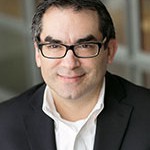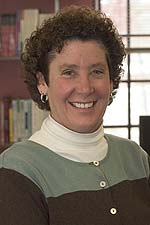 Mary Jo Kane, Ph.D., professor in the School of Kinesiology and director of the Tucker Center for Research in Girls & Women in Sport, is quoted in a Crain’s Detroit Business article, “Women in the front office: There aren’t many, and that’s bad for business.” Kane notes that “gender equity efforts in professional sports have been a mixed bag.”
Mary Jo Kane, Ph.D., professor in the School of Kinesiology and director of the Tucker Center for Research in Girls & Women in Sport, is quoted in a Crain’s Detroit Business article, “Women in the front office: There aren’t many, and that’s bad for business.” Kane notes that “gender equity efforts in professional sports have been a mixed bag.”
Kihl and colleague to publish in Business & Society Review
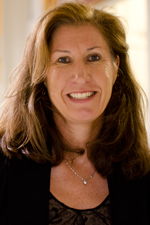 Associate professor Lisa A. Kihl, Ph.D., professor of Sport Management in the School of Kinesiology, and her colleague, Dr. Kathy Babiak (University of Michigan) have had their paper titled, “A blueprint for CSR engagement: Identifying stakeholder expectations and attitudes of a community relations program,” accepted for publication in Business & Society Review. The paper examines sport stakeholders’ expectations regarding corporations’ CSR initiatives through dialogue. Kihl and Babiak argue that stakeholder dialogue is an important way for a business to gain perceptions about how it is viewed and evaluated by its stakeholders and underlies subsequent interactions.
Associate professor Lisa A. Kihl, Ph.D., professor of Sport Management in the School of Kinesiology, and her colleague, Dr. Kathy Babiak (University of Michigan) have had their paper titled, “A blueprint for CSR engagement: Identifying stakeholder expectations and attitudes of a community relations program,” accepted for publication in Business & Society Review. The paper examines sport stakeholders’ expectations regarding corporations’ CSR initiatives through dialogue. Kihl and Babiak argue that stakeholder dialogue is an important way for a business to gain perceptions about how it is viewed and evaluated by its stakeholders and underlies subsequent interactions.
Cuevas presents on faculty and staff affinity groups at national student affairs conference
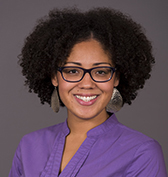
CEHD Student Services senior academic adviser Faustina Cuevas presented at the 2017 NASPA conference for higher education student affairs professionals, held in San Antonio.
Cuevas and Hammell present on microaggressions
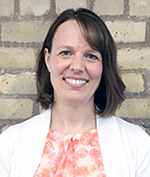

CEHD Student Services senior academic advisers Faustina Cuevas and Tracey Hammell recently presented “Microaggressions: Did that just really happen?” to the U of M Department of Family Medicine and Community Health. Their presentation examined microaggressions’ role in society and their effect on people. Cuevas and Hammell discussed what steps can be taken to understand and limit microaggressions in our own way of being as well as creating awareness of microaggressions with others.
CSPP students meet with legislators at MSCA’s Day on the Hill
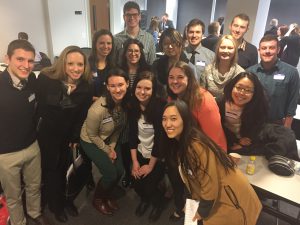
On March 16, counseling & student personnel psychology (CSPP) students participated in the Minnesota School Counselors Association’s Day on the Hill. Each student met with legislators to discuss the importance of funding more student support services personnel including: school counselors, school psychologists, school social workers, school nurses, and chemical dependency counselors.
Faculty and student participants from CSPP included: Carolyn Berger, Megan Anderson, Melissa Derby, Jeanette Vyhanek, Tony Minaglia, Melissa Kellen, Maibao Lor, Emily Kurmis, Brandon Forcier, Noah Dahle, Elisha Yuan, Rikki Hemstad, Melinda Vogel, Jing Xu, Zachary Nauschutz, and Jacob Blum.
M.S.W. graduate named 2017 Bush Fellow
 Brenda Hartman (M.S.W. ’89), a St. Paul therapist who provides counseling to adolescents, adults, and couples, was named a 2017 Bush Fellow this week.
Brenda Hartman (M.S.W. ’89), a St. Paul therapist who provides counseling to adolescents, adults, and couples, was named a 2017 Bush Fellow this week.
She and 23 other people were selected from nearly 650 applications for the fellowships. Applicants described their leadership vision and how a Bush Fellowship would both help them achieve their goals and make their community better. Each Fellow will receive up to $100,000 to pursue the education and experiences they believe will help them become more effective leaders.
With her Bush Fellowship, Hartman will study end-of-life practices from different cultures, religions, and spiritual traditions, and grow her leadership skills through coursework and consultation.
She has lived nearly three decades longer than expected after receiving a stage 4 cancer diagnosis. Over those years, she has devoted herself to addressing the social, emotional, and spiritual aspects of the cancer experience. She sees a strong need to promote a cultural shift in society’s response to death. She wants to introduce a narrative that counters fear and denial with a view of death as a healing process. She seeks new ways to incorporate end-of-life planning into training for healthcare professionals.
More information about Hartman and her therapy practice. (link this line to http://www.healingthroughlife.com/index.php
More information on the Bush Fellowship. (link to https://www.bushfoundation.org/fellowships/bush-fellowship)
Stoffregen featured in latest Science News cover story
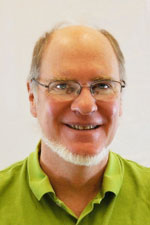 The cover story of the March 18 issue of Science News includes the latest research being conducted by Tom Stoffregen, Ph.D., professor in the School of Kinesiology and director of the Affordance Perception-Action Laboratory (APAL). Stoffregen is quoted extensively on his work related to virtual reality, motion sickness, and the sex connection.
The cover story of the March 18 issue of Science News includes the latest research being conducted by Tom Stoffregen, Ph.D., professor in the School of Kinesiology and director of the Affordance Perception-Action Laboratory (APAL). Stoffregen is quoted extensively on his work related to virtual reality, motion sickness, and the sex connection.
LaVoi to serve on panel at event at Villanova University
 Nicole LaVoi, Ph.D., senior lecturer and Tucker Center co-director in the School of Kinesiology, will be at Villanova University on March 24, 2017, to serve as a panelist for the event,“The Grace of Playing: A Conversation on Sports and Their Role in Human Flourishing.”
Nicole LaVoi, Ph.D., senior lecturer and Tucker Center co-director in the School of Kinesiology, will be at Villanova University on March 24, 2017, to serve as a panelist for the event,“The Grace of Playing: A Conversation on Sports and Their Role in Human Flourishing.”
Kane to moderate session at Radcliffe Institute for Advanced Study conference
 Mary Jo Kane, Ph.D., professor in the School of Kinesiology and director of the Tucker Center for Research in Girls & Women in Sport, will be moderating the session, “Gender, Media, and Popular Culture,” at the conference “Game Changers: Sports, Gender, and Society” to be held April 6-7 at Harvard University’s Radcliffe Institute for Advanced Study.
Mary Jo Kane, Ph.D., professor in the School of Kinesiology and director of the Tucker Center for Research in Girls & Women in Sport, will be moderating the session, “Gender, Media, and Popular Culture,” at the conference “Game Changers: Sports, Gender, and Society” to be held April 6-7 at Harvard University’s Radcliffe Institute for Advanced Study.
Award-winning book on sport management theory features chapters by Inoue, Kane, and Kihl
Three School of Kinesiology faculty contributed chapters to an award-winning book on sport management theory.
Routledge Handbook of Theory in Sport Management was selected as an Outstanding Academic Title 2016 by CHOICE magazine, published by the Association of College and Research Libraries. Yuhei Inoue, Ph.D., Mary Jo Kane, Ph.D., and Lisa Kihl, Ph.D., each wrote chapters. This is the first book to trace the intellectual contours of theory in sport management, and to explain, critique and celebrate the importance of sport management theory in academic research, teaching and learning, and in the development of professional practice.
Inoue and Kihl contributed to the Managerial Theories section with their chapters, “Developing a Theory of Suffering and Academic Corruption in Sport” (Kihl) and “Applying Strategic CSR in Sport” (Inoue). Kane contributed the chapter “The Continuum Theory: Challenging Traditional Conceptualization and Practices of Sport” in the section Sociocultural Theories. Dr. Kane is director of the School of Kinesiology’s Tucker Center for Research on Girls and Women in Sport, and Dr. Kihl is an affiliated scholar in the Tucker Center.
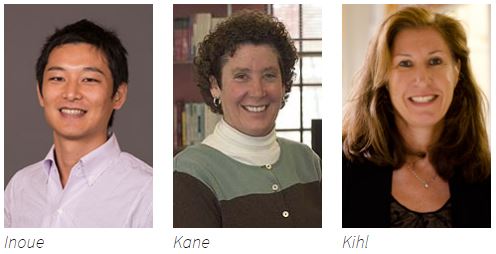
CEHD experts quoted in MinnPost on use of student data
Theodore J. Christ, professor (Educational Psychology) and director of the Center for Applied Research and Educational Improvement; Michael Rodriguez, professor (Educational Psychology) and Campbell Leadership Chair in Education and Human Development; and Mistilina Sato, associate professor (Curriculum & Instruction) and Campbell Chair for Innovation in Teacher Development were recently featured in the MinnPost article, “Minnesota is really good at collecting student data, but not the best at using it.”
The article discusses a recent report released by the Minnesota State Office of the Legislative Auditor which found “significant time and resources” were used to administer the tests but more than half of the principals and teachers surveyed said they felt “unprepared to interpret key test score data.”
“I mean, they’re just drowning in [data],” Christ told MinnPost. “It’s all over the place. And if they don’t have the capacity to use it, they just turn away from it.”
“Schools that get useful information from those MCAs are the ones that do the deeper dives,” Rodriguez explained in the article. “They look at the variability. They look at the group differences. They look at: How are students with these kinds of experiences doing versus students who don’t have those experiences, and which kinds of experiences are we giving a kid that helps them perform better? And that requires someone who can go in and breakdown those numbers and do some analysis. Not many schools have staff that can do that.”
“Every school seems to have its own assessment culture,” Sato explained to MinnPost. “Once you enter into the school, you have to first learn about how that school is using [data].”
The article mentions a class Rodriguez and Sato are developing for all students in Curriculum & Instruction’s teacher prep program. The course will help teacher candidates interpret the data available to them to better educate their students.
MinnPost ends the piece with an important question from Christ.
“We need to make a decision: Are we going to be a state who simply has decided data is not important? And then let’s stop collecting it, because we’re spending tens of millions of dollars collecting it, but we don’t know how to use it,” Christ told MinnPost. “Or are we going to be a state who values data and research? And [then] we’re both going to collect that data and support the use of it.”
Kinesiology Ph.D. candidate Kim will publish in Korean Journal of Sociology of Sport
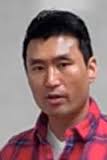 Young Ho Kim, Ph.D. candidate in the School of Kinesiology, has had a paper accepted for publication in the Korean Journal of Sociology of Sport. The paper, entitled “The Normalization of Sport Corruption and Interdependence of the Factors: Symbiosis of Threefolding’s Organism,” examines 1) how sport corruption is normalized in certain sport organizations and societies, and 2) how sport corruption, through the process of normalization, is produced and reproduced in their organic system. Young is advised by Michael G. Wade, Ph.D., and Rayla Allison, JD.
Young Ho Kim, Ph.D. candidate in the School of Kinesiology, has had a paper accepted for publication in the Korean Journal of Sociology of Sport. The paper, entitled “The Normalization of Sport Corruption and Interdependence of the Factors: Symbiosis of Threefolding’s Organism,” examines 1) how sport corruption is normalized in certain sport organizations and societies, and 2) how sport corruption, through the process of normalization, is produced and reproduced in their organic system. Young is advised by Michael G. Wade, Ph.D., and Rayla Allison, JD.
School psychology students elected to nationwide SASP office
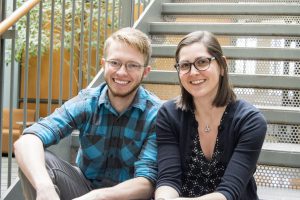
Aria Fiat and Jordan Thayer, Ph.D. students in the Department of Educational Psychology’s school psychology program, were recently elected president and student interest liason, respectively, of the American Psychological Association (APA) Division 16: School Psychology’s Student Affiliates in School Psychology (SASP) Association’s Executive Board.
A second year Ph.D. student in school psychology, Aria Fiat received her B.S. in Education & Social Policy from Northwestern University, where she co-founded and co-lead Supplies for Dreams, a non-profit that provides educational enrichment to economically disadvantaged students in Chicago. Prior to graduate school, she worked as a research coordinator studying risk and resilience in homeless and highly mobile children, and spent a year teaching English in France through the Fulbright Scholars program. Fiat’s research interests include: school mental health, social-emotional learning, positive psychological interventions, school climate, and promoting teacher resilience.
A third year Ph.D. student in school psychology and co-president of the school psychology student association (SPSA), Jordan Thayer earned his B.A. from Black Hills State University in South Dakota where he majored in psychology with an emphasis in industrial/organizational and minor in music. Thayer spent two years working, teaching, and studying education policy before deciding to turn his attention to helping youth in schools. His research interests include: improving behavior problems, particularly those resulting from a lack of engagement and motivation; understanding motivation; low-cost intervention development and implementation, particularly for students with comorbid academic and behavior problems; administrators’ roles in implementation; policy advocacy; and international school psychology.
SASP is currently the only student-led organization within the discipline of school psychology, representing hundreds of graduate students nation-wide. The organization is committed to upholding general standards set by APA, including promotion and maintenance of highly effective training programs, implementation of evidence-based academic and mental health health practices in schools, and adhering to ethical guidelines and expectations for culturally-competent practice.
Williams Ridge receives director’s award
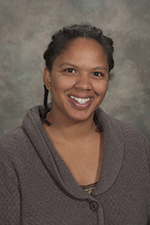
Sheila Williams Ridge, M.A., director of the Shirley G. Moore Lab School in the Institute of Child Development, received the 2016 Director’s Award from the North American Association for Environmental Education (NAAEE).
NAAEE is a membership organization that aims to accelerate environmental literacy and civic engagement through education. The Director’s Award recognizes an individual or organization that has made a significant contribution to the field of environmental education.
Williams Ridge was recognized for her work chairing the 2016 Nature-based Preschool Conference, the annual conference of NAAEE’s early childhood environmental education initiative, the Natural Start Alliance.
In addition, Williams-Ridge is on the advisory team for the Natural Start Alliance and the National Science Foundation-funded Science of Nature-Based Learning Collaborative Research Network. She also serves on the leadership team for the Council of Nature and Forest Preschools.
Kincade named finalist in CEHD 3-Minute Thesis competition
Laurie Kincade, a Ph.D. student in the Department of Educational Psychology’s school psychology program, will be competing with seven doctoral students from across the college in this year’s 3-Minute Thesis (3MT). Kincade’s thesis focuses on “The Impact of the Student-Teacher Relationship for English Language Learners.” The event takes place March 28 from 10-11 a.m. in McNamara Alumni Center’s Johnson Room. First prize is a $300 award, and prizes of $250 will go to the runner-up and people’s choice. The finalists were chosen from a preliminary round competition held last week.
3MT is an annual competition held in over 200 universities worldwide. It’s designed to challenge Ph.D. students to present their research in just three minutes in an engaging format that can be understood by an audience with no background in their discipline. The competition is intended to help students develop a presentation on their research and hone their academic communication skills to explain their work effectively to a general audience.
Judges in the CEHD competition are Karen Kaler, University Associate; Mary Tjosovold, local entrepreneur, author, and humanitarian, and CEHD alumna; and Dr. John Wright, professor of African-American and African Studies in the College of Liberal Arts.
CSPP students successfully promote, participate in Polar Plunge
 Michael Rask, first year M.A. student in the counseling and student personnel psychology (CSPP) program was stopped on the street in Dinkytown on Valentine’s Day by Steve Patterson, an anchor from Twin Cities Live (TCL) on Channel 5, and challenged to go on a date with a fellow University of Minnesota student (also walking in Dinkytown), Kristina. The two went out for coffee, and Michael sent an email to TCL with a photo of him and Kristina on their date. He challenged TCL back to donate to support him in a Polar Plunge he was participating in with fellow CSPP classmates and faculty. Participants in the Polar Plunge jump into freezing water to raise money for Special Olympics events in Minnesota.
Michael Rask, first year M.A. student in the counseling and student personnel psychology (CSPP) program was stopped on the street in Dinkytown on Valentine’s Day by Steve Patterson, an anchor from Twin Cities Live (TCL) on Channel 5, and challenged to go on a date with a fellow University of Minnesota student (also walking in Dinkytown), Kristina. The two went out for coffee, and Michael sent an email to TCL with a photo of him and Kristina on their date. He challenged TCL back to donate to support him in a Polar Plunge he was participating in with fellow CSPP classmates and faculty. Participants in the Polar Plunge jump into freezing water to raise money for Special Olympics events in Minnesota.
Watch a clip from TCL on Michael’s challenge. (4:18)
Thanks to Michael’s promotion of the event on TCL, he was able to successfully surpass his goal of raising $1,500, bringing in $1,788 in total according to his Polar Plunge page.
Other faculty and student participants from CSPP included Marguerite Ohrtman, Addison Novak, Brandon Forcier, Melissa Derby, Megan Anderson, Drew Wanschneider, Emily Cranberg, and Rikki Hemstad. The team raised the most of any of the University of Minnesota teams. The Polar Plunge event raised $860,441 for Special Olympics Minnesota.
Congratulations and great work to all of our CSPP Polar Plunge participants!
Ed Psych, special education receive top rankings

The Department of Educational Psychology and our special education program were ranked in the top 10 of the 2018 U.S. News & World Report rankings of graduate schools. We maintained a #8 ranking in special education and moved up to #9 in educational psychology. The department is part of the University of Minnesota College of Education and Human Development (CEHD) which ranked 12th among public professional schools of education, 21st among all schools, in the rankings.
CEHD is a world leader in developing innovative programs to address opportunity gaps in child development, teaching, and learning. Consider its outstanding partnership programs with school districts in Minnesota that apply evidence-based teaching methodologies to strengthen schools. Note also the impact of recent groundbreaking research on autism—which Jason Wolff, assistant professor in special education was a part of—has uncovered new patterns of brain development in infants. CEHD’s productivity last year included $44.3 million of externally funded research.
CEHD’s developmental psychology program (Institute of Child Development) was also ranked by U.S. News & World Report and is #1 in the country.
“Our college continues to reach new heights of excellence in graduate teaching, research, and outreach,” said Dean Jean K. Quam. “We are focused on improving the lives of students across Minnesota, the nation, and the world.”
Learn more about Educational Psychology’s top rated masters and doctorate programs.
Rankings methodology: U.S. News surveyed 379 schools granting education doctoral degrees. It calculates rankings based on quality assessments from peer institutions and school superintendents nationwide, student selectivity, and faculty research and resources, which includes student/faculty ratio and faculty awards as well as support for research.
HSCL colleagues’ article listed as one of most influential papers of 2016 by Veterinary Clinics: Equine Practice
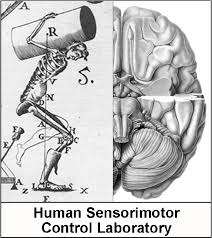 The journal Veterinary Clinics: Equine Practice has published a summary of the most influential papers in equine medicine for 2016. One of these is by Human Sensorimotor Control Laboratory (HSCL) colleagues in collaboration with a group of equine veterinarians from the University of Minnesota/Michigan State University. The paper is entitled “The Equine Movement Disorder “Shivers” Is Associated with Selective Cerebellar Purkinje Cell Axonal Degeneration.”
The journal Veterinary Clinics: Equine Practice has published a summary of the most influential papers in equine medicine for 2016. One of these is by Human Sensorimotor Control Laboratory (HSCL) colleagues in collaboration with a group of equine veterinarians from the University of Minnesota/Michigan State University. The paper is entitled “The Equine Movement Disorder “Shivers” Is Associated with Selective Cerebellar Purkinje Cell Axonal Degeneration.”
Valberg SJ, Lewis SS, Shivers JL, Barnes NE, Konczak J, Draper AC, Armién AG. Vet Pathol. 2015 Nov;52(6):1087-98. doi: 10.1177/0300985815571668
ICD ranked #1 developmental psychology program by U.S. News
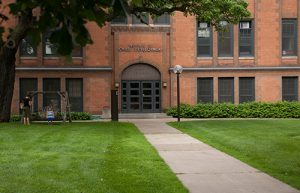 The developmental psychology program in the Institute of Child Development (ICD) is #1 in the country, according to the 2018 U.S. News and World Report rankings of graduate schools.
The developmental psychology program in the Institute of Child Development (ICD) is #1 in the country, according to the 2018 U.S. News and World Report rankings of graduate schools.
Founded in 1925, ICD is one of the oldest departments studying children’s development in the country. The Institute contributes to interdisciplinary programs in interpersonal relationships, prevention science, and infant and early childhood mental health. It also contributes groundbreaking research to the field of child development, including on topics related to executive function, resilience and autism.
Learn more about ICD’s top-rated graduate program.
To determine the rankings, U.S. News surveyed 379 schools granting education doctoral degrees. It calculates rankings based on quality assessments from peer institutions and school superintendents nationwide, student selectivity, and faculty research and resources, which includes student/faculty ratio and faculty awards as well as support for research.
Other College of Education and Human Development programs that were top-ranked in this year’s report include special education, which ranked #8, and educational psychology, which ranked #9.
“Our college continues to reach new heights of excellence in graduate teaching, research, and outreach,” said Dean Jean K. Quam. “We are focused on improving the lives of students across Minnesota, the nation, and the world.”
CEHD’s top rankings reflect innovative programs, district partnerships
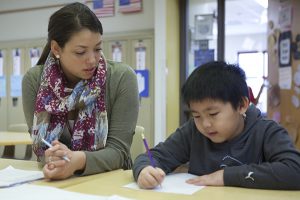 The University of Minnesota College of Education and Human Development (CEHD) is ranked 12th among public professional schools of education, 21st among all schools, in the 2018 U.S. News and World Report rankings of graduate schools. CEHD maintains a #8 ranking in special education and moves up to #9 in educational psychology. CEHD’s developmental psychology program (Institute of Child Development) is #1 in the country.
The University of Minnesota College of Education and Human Development (CEHD) is ranked 12th among public professional schools of education, 21st among all schools, in the 2018 U.S. News and World Report rankings of graduate schools. CEHD maintains a #8 ranking in special education and moves up to #9 in educational psychology. CEHD’s developmental psychology program (Institute of Child Development) is #1 in the country.
CEHD is a world leader in developing innovative programs to address opportunity gaps in child development, teaching, and learning. Consider its outstanding partnership programs with school districts in Minnesota that apply evidence-based teaching methodologies to strengthen schools. Note also the impact of recent groundbreaking research on autism, which has uncovered new patterns of brain development in infants. CEHD’s productivity last year included $44.3 million of externally funded research.
“Our college continues to reach new heights of excellence in graduate teaching, research, and outreach,” said Dean Jean K. Quam. “We are focused on improving the lives of students across Minnesota, the nation, and the world.”
Learn more about CEHD’s top-rated master’s and doctoral programs.
Rankings methodology: U.S. News surveyed 379 schools granting education doctoral degrees. It calculates rankings based on quality assessments from peer institutions and school superintendents nationwide, student selectivity, and faculty research and resources, which includes student/faculty ratio and faculty awards as well as support for research.


